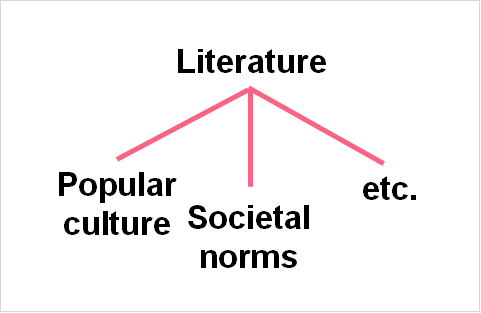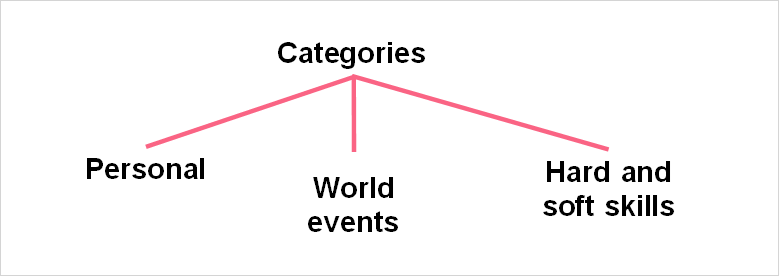
Feminism lady of shallot
Hi For my a2 coursework (NEA) i would like some help making links between feminism and the lady of shallot
Thanks
Answers
Hi Bereniceeamx, please see below. I hope it helps, if you have any more questions please contact me.
Tennyson’s ‘The Lady of Shalott’, when considered from a
feminist perspective. It is an excellent representation of the struggle faced
by women in the Victorian Age, it is an analysis of the Victorian woman’s predetermined
role within society and her desire to abandon this identity and break free into
the wider, male dominated world. During this time, society had very little, if
any tolerance for those who did not conform and this is what is portrayed
through The Lady of Shalott. She is representative of those who did not conform
to the way women were supposed to behave (the idealised role of women) and she
is subsequently punished for it.Regards,Nyomi.
02 July 2016
Whilst reading The Lady of Shalott, I couldn’t help but take
somewhat of a feminist stance. I found it intriguing that Tennyson
depicted her in such a helpless, somewhat weak character with the way in
which he focused on her beauty and inability to do almost anything.
The way that she just sits watching the knights, shepherds and
reapers who are engaging in physical labour and are defined by their
jobs when we are not really shown what activities she engages in whilst
in her tower apart from looking into the mirror. The jobs also have
connections to being male dominated, so is Tennyson is suggesting that
while the men contribute to society all that Lady Shalott does is sit
and stare in the mirror? The mirror in itself has connotations of beauty
and self obsession, the way in which she is constantly staring in the
mirror puts a focus on her beauty as opposed to any other quality she
may possess such as her willpower to not look out onto Camelot, for
majority of the piece anyway.
The focus on her beauty is even reinforced when she dies and the
somewhat beautiful nature of her death. Her death is described as “a
gleaming shape she floated by” (line 156) and she is described to just
lay down rather than to fall or injure herself, anything that would
subvert that soft and sensitive image of femininity that Tennyson
employs. He even describes her to be “lying, robed in snowy white” (line
136) and image of innocence and again a soft, sensitive description of
her that was the stereotypical image of a woman who’s purpose merely
surrounded looking beautiful.
The way in which she is waiting for a knight to save her also
reiterates the helpless nature of her character. Tennyson writes that
before she saw or, more accurately, heard Lancelot, “she hath no loyal
knight” (line 62) to save her. The fact that she faces the outside world
because of the knight and then dies, again emphasizes her vulnerability
and inability to survive in the real world – What does this say about
women in the Victorian Era? That their lives should be confined to the
household while the men contribute to society because they would not
survive?
Also, the way in which she had basically sacrificed her life for
Lancelot and then all he says at the sight of her death is, “she has a
lovely face” (Line 169) reinforces the idea that she is defined by her
beauty and despite her actions being heroic and passionate, she is
reduced back to her looks by the man she essentially died for.
I do think that the way that she has the courage to face the outside
world suggests the strength of her character and it could be interpreted
that her death is out of her control, it’s the curse, therefore perhaps
does not suggest her inability to survive in the real world. However,
personally I think that this does still make a negative comment on the
status and purpose of Victorian era women.
03 July 2016
Should you need further assistance. Kindly get back to me any time of your convenience. Am always available....Thank you.
03 July 2016
Think about her life and how it relates to women's rights and how she was treated. Think about how the feminists would view her.
31 August 2016

Add an answer
Similar questions
 As you might have guessed, English literature is considered as different from literature in the English language. The table below holds some other types of literature in the English language.
As you might have guessed, English literature is considered as different from literature in the English language. The table below holds some other types of literature in the English language. 
 Within these categories, you can find the following genres:
Within these categories, you can find the following genres:  You’ll find literature in the present day affects our lives mainly as a means of entertainment: from classic plays to binge-worthy series to stories shared at the dinner table. While this may seem like a modern-day tendency, the truth is literature has always been a means of entertainment.
You’ll find literature in the present day affects our lives mainly as a means of entertainment: from classic plays to binge-worthy series to stories shared at the dinner table. While this may seem like a modern-day tendency, the truth is literature has always been a means of entertainment.  Let’s explore each of these categories in-depth.
Let’s explore each of these categories in-depth. 